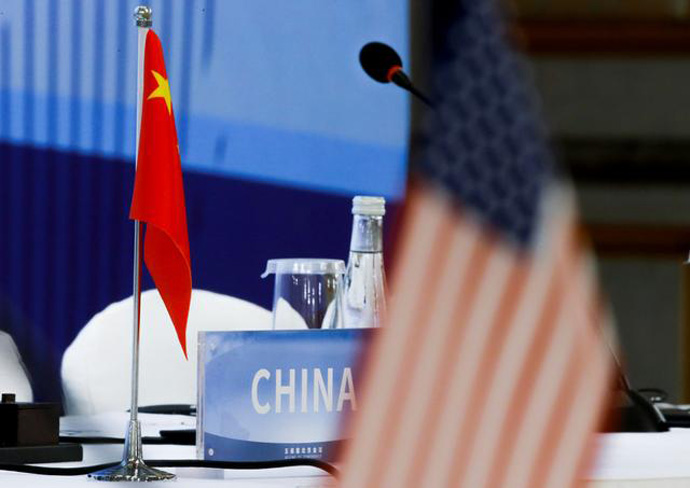Zhong Houtao, Associate Professor, School of National Security, University of International Relations
Aug 09, 2022
Speaker of the U.S. House of Representatives Nancy Pelosi defied China’s strong opposition and voices of caution in the United States when she visited Taiwan in late July. She raised great concern in China and elsewhere and cast a dark shadow over the peace and stability of the region and China-U.S. relations. In the future, China and the United States must prevent the Taiwan question from triggering a downward spiral.
Tao Wenzhao, Honorary Member of the Chinese Academy of Social Sciences; Fellow, CASS Institute of American Studies
Aug 09, 2022
Pushing shamelessness and political amnesia to new heights, U.S. House Speaker Nancy Pelosi sneaked into Taiwan in early August for a visit that was a needless affront. Needlessly inflaming tensions, the trip was wrong at three levels: China’s sovereignty and territorial integrity, relations with the United States and principles of international order anchored by the 1943 Cairo Declaration and the 1945 Potsdam Proclamation.
Minxin Pei, Tom and Margot Pritzker ’72 Professor of Government , Claremont McKenna College
Aug 08, 2022
US Speaker of the House Nancy Pelosi’s arrival in Taiwan has incited a predictably strong response from China. Chinese warplanes have brushed up against the median line dividing the Taiwan Strait. The Chinese foreign ministry has warned of “serious consequences” as a result of Pelosi’s visit to the island. Chinese President Xi Jinping has told US President Joe Biden that “those who play with fire will perish by it.” And now, China has just announced a major military exercise with live-fire drills starting August 4 (just after Pelosi leaves Taiwan). The specter of military confrontation looms large.
David Shambaugh, Gaston Sigur Professor and Director of China Policy Program at George Washington University, Distinguished Visiting Fellow at Hoover Institution of Stanford University
Aug 02, 2022
The most recent direct discussion between U.S. President Joseph Biden and Chinese President Xi Jinping was dominated by the Taiwan issue—which has become increasingly volatile and has returned to a central point of tension in the relationship. The telephone conversation allowed each president to restate their respective positions. Hopefully such an exchange will contribute to restraint, non-provocations, and stability between Beijing and Washington (although Taipei has its own agency and can cause instability).

Zhao Minghao, Professor, Institute of International Studies at Fudan University, and China Forum Expert
Aug 01, 2022
The recent conversation offered an opportunity to manage bilateral relations from a strategic height. But because of domestic political strife in the U.S, there will likely be no letup in attempts to amplify “China threat” rhetoric.
Li Huan, Deputy Director at CICIR's Institute of Hong Kong and Macao Studies, and Distinguished Research Fellow, Xiamen University
Jun 30, 2022
The United States often uses the term “international waters,” but no such thing is defined in the 1982 UN Convention on the Law of the Sea. When the false claim is made that China is in violation of the rules, it needs to clarify its jurisdiction.

Yi Fan, a Beijing-based political commentator
Jun 27, 2022
In the midst of the Cold War, US policymakers became convinced that détente with China would best serve America’s strategic interests. It was only made possible after the question of Taiwan was handled with diplomatic dexterity. The magic formulation clinched after painstaking negotiation was US acknowledgement of the Chinese position that “there is one China, and Taiwan is a part of China”.
Sun Chenghao, Fellow, Center for International Security and Strategy of Tsinghua University; Munich Young Leader 2025
Jun 19, 2022
At the recent meeting in Luxembourg between China and the United States, the PRC emphasized two bedrock interests — Taiwan and the broader Asia-Pacific. America has been shifting its approach on both fronts. If it does not dial back its confrontational attitude, prosperity and peace in the region will not be attained.

Doug Bandow, Senior Fellow, Cato Institute
May 31, 2022
If the United States and China went into armed conflict, it would be ruinous for both nations. The two governments must work together to find common ground, address arising issues, including tensions with Taiwan, and prevent war.
Shen Dingli, Professor, Institute of International Studies, Fudan University
May 31, 2022
There was nothing new revealed in the U.S. president’s visit, other than launching Indo-Pacific Economic Framework. Roping in Japan and South Korea and declaring that the U.S. would “intervene” in a Taiwan conflict, all amounted to old news.